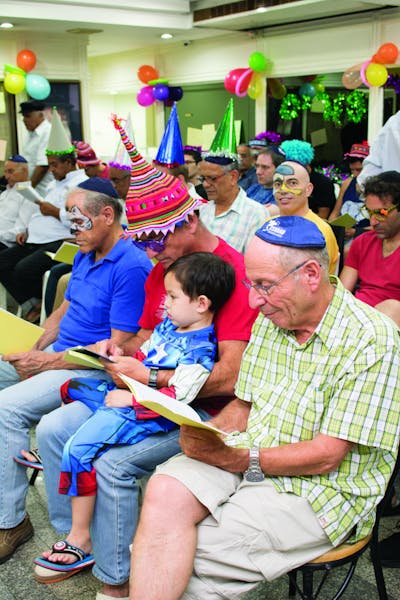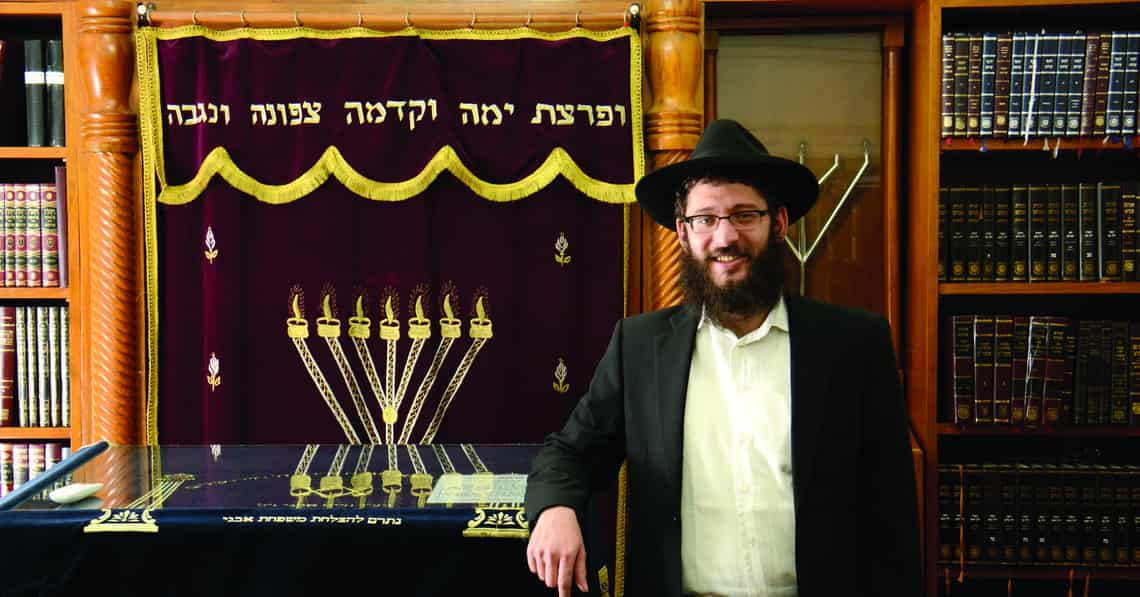As an American Jew, studying at Chiang Mai University and interning at Citylife for the semester, I was curious about Jewish life in Thailand. Israelis and Jews are virtually unknown by most Thai people, and it would appear that their role in society is unsubstantial. When I took a closer look, however, I was surprised to discover a thriving Israeli tourism industry in Thailand. On top of that, there are Israelis living here, as well as Thais living in Israel, who play important roles in the economies of both countries. This piece broadly explores the relation between Thailand and both its Jewish and Israeli residents and visitors.
Siam’s First Jews
I bet you didn’t know that there are deep historic Jewish roots in Thailand. So deep in fact, that legend and history are too intertwined to be accurately labeled. According to ‘Jews in Thailand,’ by Ruth Gerson and Stephen Mallinger, the Shinglung people on the Indo-Burmese border believe themselves to be direct descendants of the tribe of Manesseh, which claim that they were exiled from Israel in 722 BCE by the Assyrian king.
The Karen people in Myanmar and Northern Thailand may be related to the Shinglungs, and there is speculation that aspects of Karen religious practices trace back to those of the biblical Israelites.
Aside from a few tribal claims, there is no documentation of Jews residing in Siam until the 19th century. Nonetheless, there may have been Euro-Jewish explorers travelling throughout Thailand as early as the 1600s and many historians believe that Middle-Eastern or European Jews resided in the merchant communities of ancient Ayutthaya.
Early exposure to Judaism for many Thai people came solely from missionaries and was on the large part negative, blaming Jews for the death of Christ.
Jewish residency in Thailand began during the reign of King Rama V, between 1853 and 1910, when Thailand began modernisation. Jews opened businesses in Bangkok, mostly hotels and boarding houses. Some were employed by the Thai government, which valued their language skills. Unlike in Hong Kong or Singapore, however, there was never a significant Jewish community in Thailand, only some locals, temporary residents and tourists. Also, unlike these other communities that were primarily of Sephardic origins, the immigrants to Thailand were Ashkenazi Jews, mostly from Russia.
Today, most Jews in Thailand are of European or Asian origin with only few being Thai nationals. Of Thailand’s 1,000 or so Jews, most live in Bangkok and own businesses with a notable amount in the diamond industry.
Thai-Israeli Relations
Interestingly, in 1918, King Rama VI supported the Balfour Declaration, favouring the creation of Israel. In fact, Siam was the first Asian and non-Christian country to support Zionism.
The most visible connection between Jews in Thailand is through Israel, which established its embassy in 1958. Since then, several joint projects have been implemented between the countries. Israel introduced new methods of irrigation and agriculture to Thailand, and throughout the 1980s, the Israeli irrigation company ‘Tahal’ assisted with the establishment of many Royal Projects in Northern Thailand. During that time, military giant Moshe Dayan, who led Israel during the Six Day War, came for a visit to tour the Royal Projects, showing interest in the archeological collection held at Citylife’s old office.
Thailand’s Princess Chulabhorn Mahidol has also paid many visits to Israel to promote scientific research. “I feel Israeli in my heart,” the Princess said to ex-Israeli President Shimon Peres.
Currently, there are 35,000 Thai workers in Israel. They work primarily in agriculture and are substantial to Israel’s economy.
Cultural Ignorance
Every local Israeli and Jew that I spoke to felt safe and welcomed in Thailand. In spite of a small amount of anti-Jewish propaganda espoused by German emissaries during World War II, there are no lingering prejudices and Thai people as a whole do not hold any anti-Semitic sentiments.
Nonetheless, there have been a few unfortunate incidents, and Thailand occasionally pops up in the international news for its inappropriate usage of Nazi emblems. Nazi-themed bars, cartoon Adolf t-shirts, even a mock KFC with Hitler as a mascot, have caused a stir.
In 2011, students of Sacred Heart College, a Chiang Mai catholic school, came to their sports day event dressed as Nazi soldiers, and did a parade along Chang Klan Road passing the newly opened Chabad House. “At home, in Toronto, that’s all people knew of Chiang Mai,” said Jewish Canadian Barry Wasserzug, who has lived in Chiang Mai for a number of years. “I think that when the Thai students were told what it meant, they felt remorse. They had no idea. It was a lack of education.”
Everyone that I spoke to agreed that this behavior is the result of ignorance, not hate. There are the occasional guesthouses around Chiang Mai and Thailand which feature ‘No Israeli’ signs, added Barry, but this is not due to anti-Semitism, but the rowdy and confrontational behaviour of some young Israeli backpackers.
Shalom Chabad
Chabad-Lubavitch is an international Hasidic organisation that can be traced back to the 1940s. Today, there are 3,300 institutionalised Chabads that cater to the Jewish people world-wide. In May1993, Thailand established its first Chabad, in Bangkok. “Now, Bangkok and Thailand have a place on the Jewish map,” said Rabbi Yosef Kantor, Thailand’s Chief Rabbi and Director of Chabad.
Today, there are Chabads located in Bangkok, Chiang Mai, Koh Samui and Phuket. “The first thing we did was set up the Jewish cemetery. Before, Jews could only be buried in a Catholic cemetery,” Rabbi Kantor said.

In Chiang Mai, Rabbi Yossi Pikel, who arrived with his family here seven years ago, serves as the spiritual leader of the local Chabad. “We have a big responsibility with helping Jews spiritually. Many people come here and need help getting around, need support, need to celebrate Shabbat or are just lonely,” Rabbi Pikel said. Every Friday night, Chabad hosts a large dinner for Shabbat, with a couple hundred Jews, With mostly Israeli tourists attending. Jewish holidays are busy at the House as well.
Chabad also provides the Jewish community with necessities such as kosher food and a mikvah. Seven days after a woman finishes menstruation, she goes to the mikvah, a small pool filled with rainwater, to cleanse herself. “Before Chabad, there was no mikvah to use, so if someone wanted to use one, they would have to fly to Bangkok,” Orit Benita, a long term Israeli resident in Chiang Mai said.
Although the Pikels enjoy living in Chiang Mai, living as a Hasidic Jewish family comes along with its difficulties. “Our kids go to school through a webcam. They can see the teacher and other students, who are Chabad kids from around the world,” said Chani Pikel, who went on to confide that socialising is a bit difficult for the kids, but they know some Jewish children in the area and are happy.
Chabad sits on Chang Klan Road, and since its opening, a number of other Israeli businesses have opened in the vicinity.
Living Secular(ish)
Barry Wassurzug, who came to Chiang Mai from Canada in 2008, is a less-religious Jew, and felt that he did not fit in with the Chabad community due to its ultra-religiousness and the overwhelming presence of tourists at its events.
He felt strongly that there needed to be another Jewish outlet for more secular residents, so he took it upon himself to begin inviting people into his home for Chanukah. Two years ago, he received a newsletter from Rabbi Yosef Kantor saying that Chiang Mai should have a large, inclusive Chanukah celebration.
“I wrote to Rabbi Kantor and he wrote back saying that I was not kosher and everything in the house would need to be kosher. I responded again saying ‘When you go on an airplane, you eat kosher, but the person next to you does not. Do you turn the plane around?’ He responded that he had never been asked this before and when the next year came around, Kantor said that Chabad would sponsor the event and supply all of its food,” Barry said. 2015’s Chanukah at Barry’s saw about a hundred people, Jews and non-Jews, who came together in celebration.
Yossi Rosenboim, a private Hebrew tutor, agrees, “Whenever you go to areas where there are not big Jewish communities, the option of having anything ‘Jewish’ was to go to Chabad, but Chabad comes with a price, which is that you have to adhere to their way of life.” A few years ago Yossi and a friend began hosting Passover Seders for the more secular Jews in Chiang Mai.
“Judaism is my cultural DNA. You cannot celebrate holidays by yourself,” he said.
Jewish Backpackers and Flashpackers
Who would think that the people of a small Middle-Eastern country with an aggressively different culture from that of Thailand’s, would pick it as such a hot spot? Well, according to the tourist police, more than 100,000 do every year. Israeli tourism in Thailand is a surprisingly booming industry.
For several decades, Thailand has been a prime destination for young Israelis recently released from the army.
I sat with Patcharamon Soontaragon, owner of Thana Hotel and Guesthouse. Founded in 1996, Thana is a longtime favourite amongst Israeli tourists, which make up almost all of its customers. During high season, Thana houses up to 450 people per week.
When the Israelis first came, Thana befriended them. Soon, many Israelis knew about the hostel. Thana also works closely with the Israeli embassy and reaches out to Israeli tourists who may need help. “Back in the day, in order for us to provide kosher food, a rabbi would come here to do the killings. Now, we buy our food from Chabad and the rabbi comes here every morning to do prayers,” Patcharamon said.
“Israeli customers tell me that they like coming to Thailand because Israel does not have many trees,” she said, laughing.
Another local business, Sababa (Hebrew’s version of sabai) is a restaurant run by Ezra Dahari, located near Chabad. “Only about 20% of my customers are Israeli. I had a Thai costumer the other day who came at 11:30pm, right before closing and came again at 12 the next day when I opened.”
Barry noted an observation he had made at one of his dinners; food is a common theme within both Thai and Jewish culture. “Shevet achim gam yachad,” Ezra told me, “It means we should sit together [around the table] in unity.”
Perhaps the Jewish and Thai cultures have more in common than we thought.
